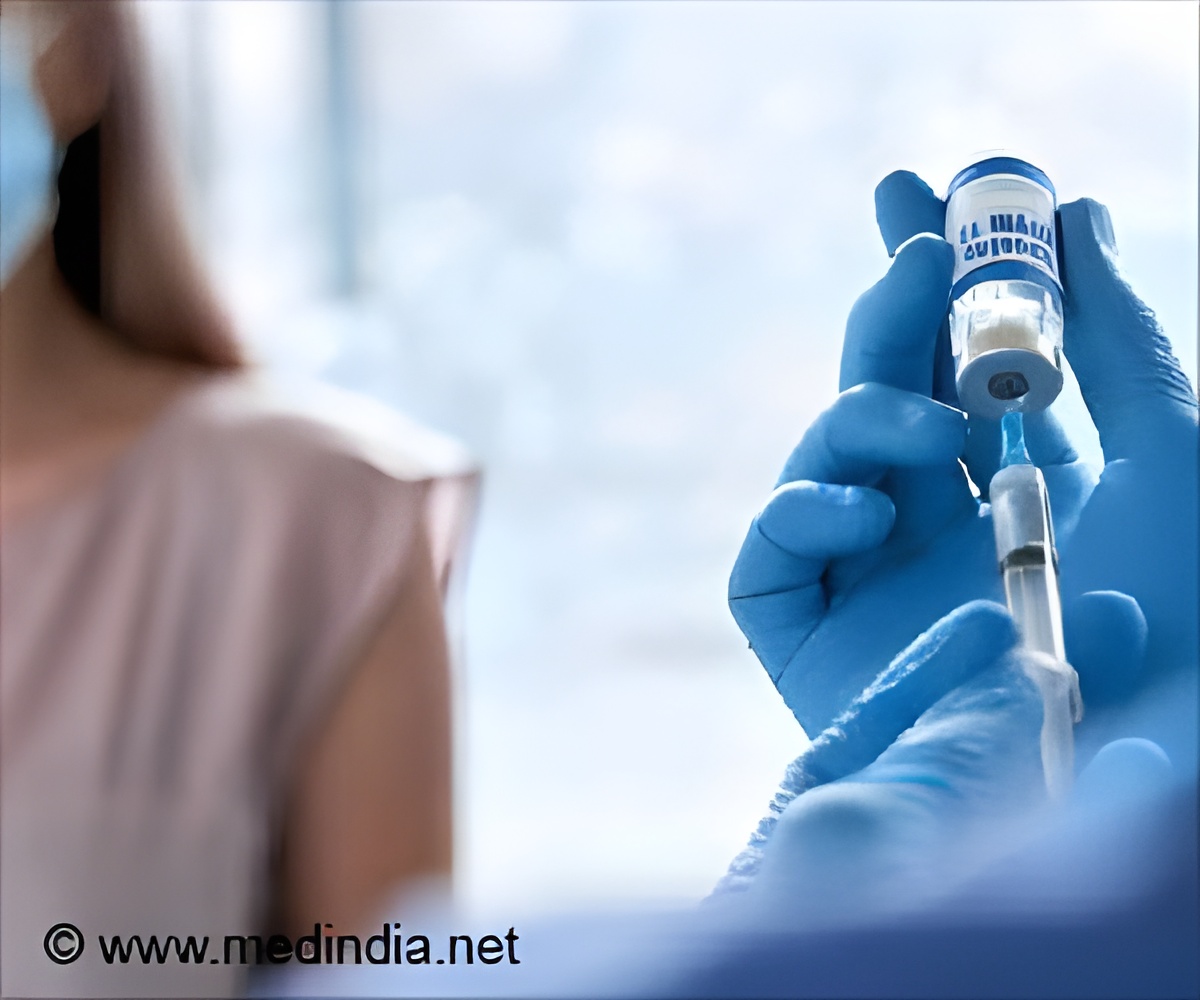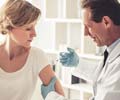President Joe Biden's plan to free the US from COVID-19 restrictions by Independence Day through mass vaccinations has been hit by the pause in the use of the the Johnson & Johnson (J&J) vaccine following reports of blood clots in few people.

‘People who have received the J&J COVID-19 vaccine and develop severe headache, abdominal pain, leg pain, or shortness of breath within three weeks after vaccination should contact their health care provider.’
Read More..




The nation's top expert on COVID-19 and Biden's Chief Medical Advisor, Anthony Fauci, said, "This is a really rare event. If you look at what we know so far, there have been 6 out of the 6.85 million doses, which is less than one in a million." Read More..
But the action was being taken "out of an abundance of caution" so that medical authorities can "take a good look at it." he said.
Besides cutting down on the availability of the vaccines even if temporarily, the news of the problems with the J&J vaccine and the suspension of its use are likely to reinforce vaccine hesitancy.
Before the J&J problem arose, several polls showed that about one in four people in American would not be vaccinated.
About 70 per cent of the population has to be vaccinated to reach herd immunity that will stop the spread of the disease according to experts and Biden's hope of "independence" from the coronavirus virus by Independence Day on July 4 was counting on it.
Advertisement
With both vaccines, the affected women developed clots in veins in the brain, a condition known as venous sinus thrombosis. With AstraZeneca it occurred in women under the age of 60 and in the case of J&J it was noticed in women between 18 and 45 years. The symptoms showed up within two weeks of taking the vaccine.
Advertisement
Several countries, including Germany, France and Italy, suspended the use of the AstraZeneca vaccine for a time and now they allow it to be used only for people over the age of 60 or 65 depending on the countries.
The AstraZeneca vaccine, which is made in India by the Serum Institute of India under the brand name Covishield, has not yet received emergency use authorization in the US.
Both the vaccines use adenoviruses, which cause minor colds, but have been disabled to convey a spike protein from the coronavirus that causes the body to make antibodies that can fight the COVID-19 virus.
In contrast, the Pfizer and Moderna vaccines, which have also been approved for emergency use in the US, use a different, more recently developed technique. They rely on a genetically engineered messenger RNA (mRNA) to trigger the making of antibodies.
According to the FDA, venous sinus thrombosis has not been reported by anyone using the Pfizer and Moderna vaccines so far.
Biden had set a deadline of May 1 for all the people over 16 years in America to become eligible for COVID-19 vaccines in order to meet his Independence Day goal.
He later moved the deadline for making all over 16 eligible for vaccinations to Monday as the pace of vaccinations picked up. Currently, vaccines are restricted in most states based on age or occupations.
Although the governments, state and federal, have tried to make the vaccines widely available, in many places it is difficult to find appointments for getting vaccinated. With some exceptions, they have to be booked online handicapping the poor and the elderly.
The Pfizer and Moderna vaccines have to be given in two doses, while the J&J needs only one jab, making it important for vaccinating those who cannot go to injection centres or cannot be monitored for the second shot as they may be homeless or have other problems.
So far 120 million people "or an impressive 36.8 per cent of the population" have received at least one dose of the vaccine and 74 million or 22.6 per cent have been completely vaccinated.
Biden's COVID-19 response coordinator Jeff Zients said that enough vaccines were available and the US could continue with the current rate of 3 million vaccinations a day and even increase it.
Fauci said that he did not think the government agencies had "pulled the trigger too soon" on the J&J vaccine by pausing the vaccinations. "You want to make sure that safety is the important issue here," he said.
"You want to hold off for a bit, and it very well may go back to that, maybe with some conditions or maybe not," he added.
J&J said, "The health authorities advise that people who have received our COVID-19 vaccine and develop severe headache, abdominal pain, leg pain, or shortness of breath within three weeks after vaccination should contact their health care provider."
It said that it was delaying the rollout of its vaccine in Europe, where it was reviewing the cases with health officials.
Source-IANS












